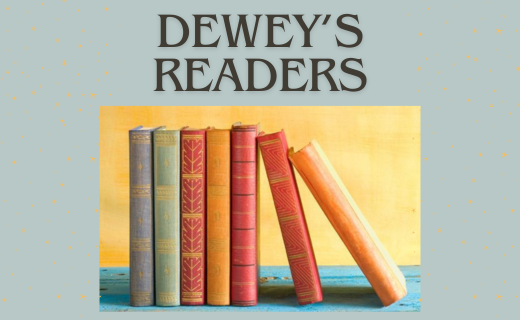Dewey’s Readers
Flight of the WASP: The Rise, Fall, and Future of America's Original Ruling Class
Wednesday, May 15
4:00 p.m.
Sydney Wright Room
For decades, writers have proclaimed the diminishment of the White Anglo-Saxon Protestants, who for generations were the dominant socio-cultural-political force in America. While the WASP elite has, in the last half century, indeed drifted from American centrality to the periphery, its relevance and impact remain, as Michael Gross reveals in his compelling chronicle.
From Colonial America's founding settlements through the Gilded Age to the present day, Gross traces the complex legacy of American WASPs through the lives of fifteen influential individuals and their very privileged, sometimes intermarried families. As the clans progress, prosper, and periodically stumble, defining aspects in the four-century sweep of American history emerge: our wide, oft-contentious religious diversity; the deep scars of slavery, genocide, and intolerance; the creation and sometime misuse of astonishing economic and political power; an instinct to offset inequity with philanthropy; an equal capacity for irresponsible, sometimes wanton, behavior.
In previous acclaimed books such as 740 Park and Rogues' Gallery, Gross has explored elite culture in microcosm; expanding the canvas, Flight of the WASP chronicles it across four centuries and fifteen generations in an ambitious and consequential contribution to American history.
Wednesday, June 19
4:00 p.m.
Sydney Wright Room
When a veteran Washington journalist moved to Kansas, he met a new neighbor who was more than a century old. Little did he know that he was beginning a long friendship—and a profound lesson in the meaning of life. Charlie White was no ordinary neighbor. Born before radio, Charlie lived long enough to use a smartphone. When a shocking tragedy interrupted his idyllic boyhood, Charlie mastered survival strategies that reflect thousands of years of human wisdom. Thus armored, Charlie’s sense of adventure carried him on an epic journey of the Jazz Age, racing aboard ambulances through Depression-era gangster wars, improvising techniques for early open-heart surgery, and cruising the Amazon as a guest of Peru’s president.
David Von Drehle came to understand that Charlie’s resilience and willingness to grow made this remarkable neighbor a master in the art of thriving through times of dramatic change. As a gift to his children, he set out to tell Charlie’s secrets. The Book of Charlie is a “genuinely original, formula-shattering” (Bob Woodward) gospel of grit—the inspiring story of one man’s journey through a century of upheaval. The history that unfolds through Charlie’s story reminds you that the United States has always been a divided nation, a questing nation—a nation of Charlies in the rollercoaster pursuit of a good and meaningful life.
Wednesday, July 17
4:00 p.m.
Sydney Wright Room
On November 6, 1860, Abraham Lincoln became the fluky victor in a tight race for president. The country was bitterly at odds; Southern extremists were moving ever closer to destroying the Union, with one state after another seceding and Lincoln powerless to stop them. Slavery fueled the conflict, but somehow the passions of North and South came to focus on a lonely federal fortress in Charleston Harbor: Fort Sumter.
Master storyteller Erik Larson offers a gripping account of the chaotic months between Lincoln's election and the Confederacy's shelling of Sumter--a period marked by tragic errors and miscommunications, enflamed egos and craven ambitions, personal tragedies and betrayals. Lincoln himself wrote that the trials of these five months were "so great that, could I have anticipated them, I would not have believed it possible to survive them."
At the heart of this suspense-filled narrative are Major Robert Anderson, Sumter's commander and a former slave owner sympathetic to the South but loyal to the Union; Edmund Ruffin, a vain and bloodthirsty radical who stirs secessionist ardor at every opportunity; and Mary Boykin Chesnut, wife of a prominent planter, conflicted over both marriage and slavery and seeing parallels between them. In the middle of it all is the overwhelmed Lincoln, battling with his duplicitous secretary of state, William Seward, as he tries desperately to avert a war that he fears is inevitable--one that will eventually kill 750,000 Americans.
Drawing on diaries, secret communiques, slave ledgers, and plantation records, Larson gives us a political horror story that captures the forces that led America to the brink--a dark reminder that we often don't see a cataclysm coming until it's too late.
The Oath and Honor: A Memoir and a Warning
Wednesday, August 21
4:00 p.m.
Sydney Wright Room
In the aftermath of the 2020 presidential election, Donald Trump and many around him, including certain other elected Republican officials, intentionally breached their oath to the Constitution: they ignored the rulings of dozens of courts, plotted to overturn a lawful election, and provoked a violent attack on our Capitol. Liz Cheney, one of the few Republican officials to take a stand against these efforts, witnessed the attack first-hand, and then helped lead the Congressional Select Committee investigation into how it happened. In Oath and Honor, she tells the story of this perilous moment in our history, those who helped Trump spread the stolen election lie, those whose actions preserved our constitutional framework, and the risks we still face.
